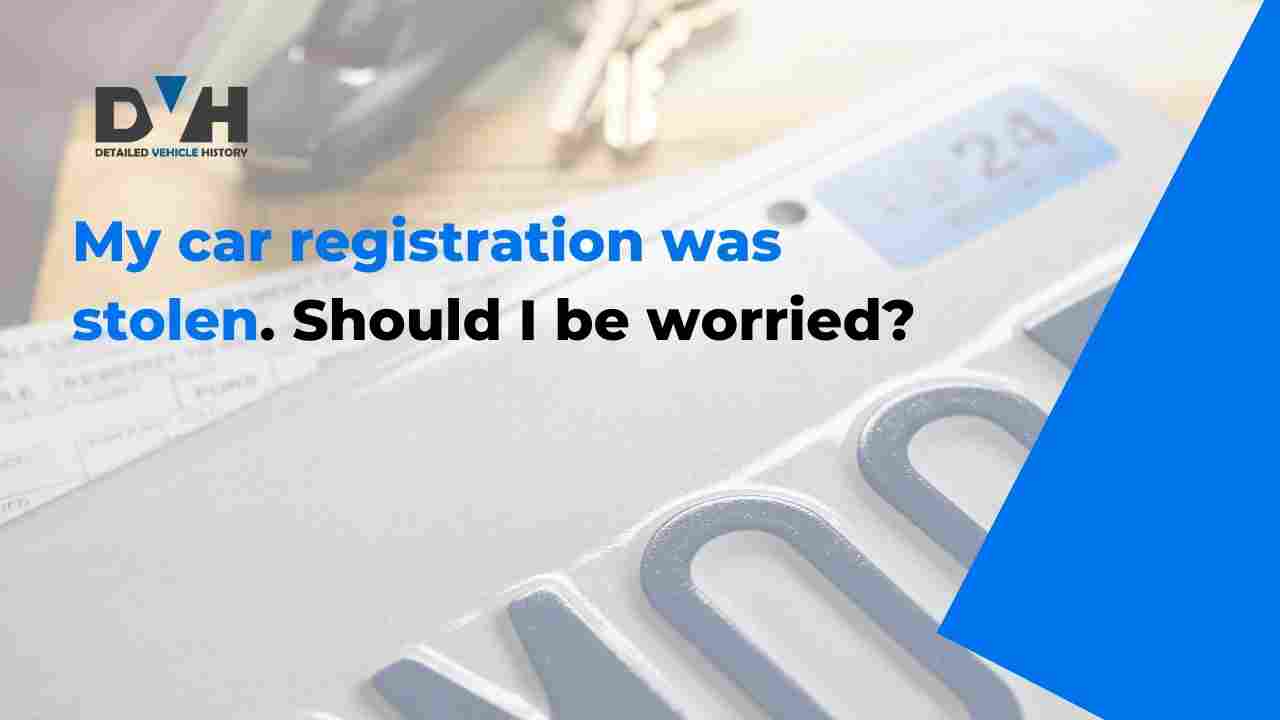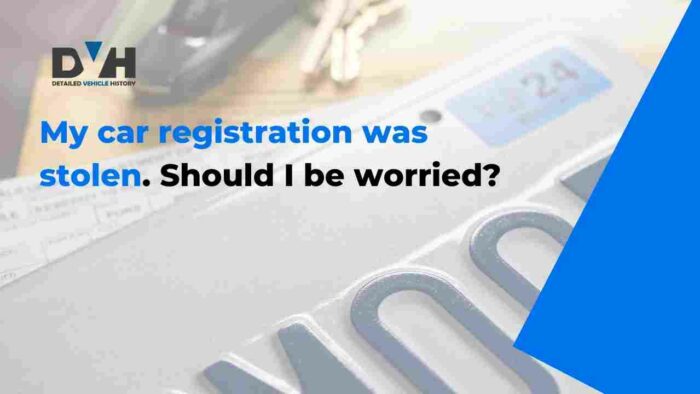
Imagine this: you get into your car one day and realize your registration is missing. Panic sets in. A stolen car registration can lead to various problems, including identity theft or other fraudulent activities.
In this article, we’ll break down the potential risks and consequences, how to check if your registration has been stolen, and what steps to take if it happens to you. We’ll also discuss preventative measures to protect your registration from theft.
Why Do Car Thieves Steal Registrations?
Car thieves often seek ways to commit fraud. Stealing car registrations is a common tactic. Your registration contains valuable information, such as your vehicle’s identification number (VIN) and your personal details. Thieves can use this information to create fake documents or to sell your car illegally.
With a stolen registration, they can also file claims on totaled cars or even duplicate car keys. In some cases, thieves might use your registration to walk into a dealership and drive away with a new vehicle.
Another reason for stealing registrations is the personal information they contain. Your registration includes your home address, which can make you a target for further theft or burglary. If thieves know where you live, they may attempt to break into your home after stealing your registration.
By targeting registrations, thieves can operate under the radar. They exploit the trust that people place in official documents. Unfortunately, once they have your registration, they can act quickly, making it essential for you to understand the risks involved.
READ ALSO: Chassis Number vs. VIN: Are They the Same?
What Makes Your Car Registration Valuable?
Your car registration holds significant value because it connects you to your vehicle and contains sensitive information. It includes details like your name, address, and vehicle specifications. Thieves can use this information in various ways, including:
- Identity Theft: Criminals can impersonate you and open lines of credit or make fraudulent purchases.
- Vehicle Fraud: They might sell your car or transfer ownership without your knowledge.
- Creating Fake Documents: Thieves can forge documents using your registration details, leading to further complications.
For these reasons, keeping your registration secure is essential.
What Can Someone Do With Your Car Registration?
If someone steals your registration, the possibilities are concerning. They could forge documents to sell your car. This can leave you without your vehicle and in a tangled web of legal issues.
Thieves may also use your registration for other criminal activities, including:
- Impersonation: They can use the stolen registration to impersonate you and commit fraud.
- Vehicle Sales: Thieves may register and sell vehicles using your information.
- Insurance Fraud: They could falsely claim insurance on stolen vehicles using your details.
- Finding Your Address: With access to your address, they could target your home for burglary.
What Should I Do If My Car Registration Is Stolen?
If you find yourself in this situation, don’t panic. Instead, take these steps to protect yourself:
File a Police Report
Start by reporting the theft to your local police department. This creates an official record of the incident. When filing, provide as much detail as possible about when and where it happened. The more information you share, the better they can assist you.
Alert the Department of Motor Vehicles
Next, contact your state’s Department of Motor Vehicles (DMV). They can guide you on how to proceed after the theft. Inform them about the situation, and they may offer to cancel the old registration. This step is crucial in preventing any future misuse. The DMV may also issue a replacement registration, ensuring you stay compliant with the law.
Secure Your Vehicle
While dealing with the stolen registration, make sure your vehicle is secure. Consider installing anti-theft devices. These can include steering wheel locks, brake locks, or GPS trackers. Taking these steps adds an extra layer of protection for your car. If a thief can’t easily access your vehicle, they might think twice before targeting you.
Report the Theft to Your Auto Insurance Provider
Don’t forget to inform your auto insurance company about the theft. They may have specific procedures for dealing with stolen registrations and even offer to conduct their own investigation.
Reporting this incident helps you keep your records straight and can assist in determining any claims related to theft. Some insurers might also offer additional guidance on protecting your vehicle.
Monitor Your Credit Report and Bank Accounts
Keep an eye on your credit report and bank accounts. Look for any unusual activity. Thieves might try to use your information to open accounts or make unauthorized purchases. If you spot anything suspicious, report it immediately. Monitoring your accounts regularly can help catch any potential misuse early on.
Consider Identity Theft Protection
Given the potential risks, you might want to consider identity theft protection services. These services can help monitor your personal information and alert you to any unauthorized use. It’s an extra precaution to safeguard yourself after the theft. Many services offer real-time alerts and recovery assistance, making it easier to act if something goes wrong.
READ ALSO: 5 razones por las que el VIN no se encuentra o no es válido durante la verificación del VIN
Preventative Measures to Protect Your Car Registration from Theft
Now that you know what to do if your registration gets stolen, let’s discuss how to prevent this from happening in the first place. Keeping your car registration safe is essential.
Here are some tips:
- Don’t leave valuables in the car: Leaving items like laptops or bags in plain sight invites thieves.
- Always lock your vehicle: Even when parked at home, locking doors adds an extra layer of security.
- Be mindful of parking locations: Choose well-lit, busy areas when parking, especially at night.
- Store documents securely: Keep important documents like registrations in a safe place. Don’t leave it in the glove compartment, where it’s easily accessible. Instead, keep it at home in a locked drawer or safe. This small step can make a big difference in protecting your information.
- Be cautious: Be cautious about sharing your personal information. Only provide details to trusted sources. For instance, if you’re selling your car, consider using a service like Detailed Vehicle History to obtain a reliable vehicle history report and even a window sticker. This ensures that the buyer receives accurate information without risking your personal details.
By following these guidelines, you can help protect yourself from the risks associated with a stolen car registration.
Conclusion
In conclusion, if you find yourself in a situation where your car registration has been stolen, act quickly. Report it to the police and DMV, secure your vehicle, and monitor for any signs of fraud. Remember that prevention is key; safeguarding your documents will help keep you safe from potential threats in the future.
If you ever need to check if your car is marked by the police, you can visit this guide for assistance. Always stay vigilant and proactive in protecting your vehicle and your identity. Taking these steps now can save you a lot of trouble later.



